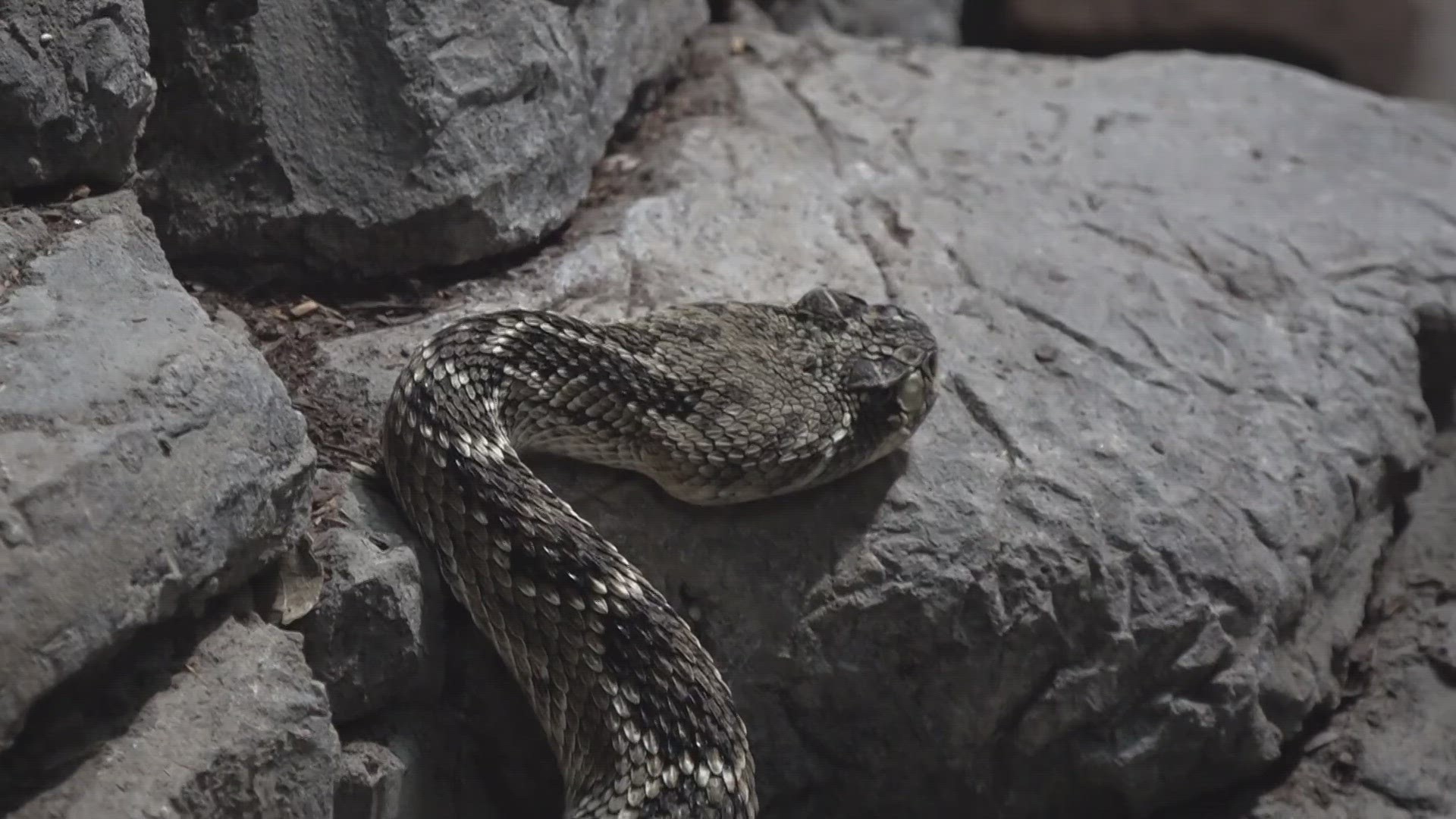WACO, Texas — When Spring season approaches, rattlesnake season follows.
Venomous snakes like rattlesnakes, copperheads, cottonmouths and coral snakes, as well as non-venomous snakes usually nest in the winter.
In late February/early March, mating season for snakes begins and this is when snakes are most active in Texas.
Because they're mating, these snakes become more agitated and dangerous.
Killeen electrician Lindel Coffie experienced a rattlesnake first hand in early March.
"I did encounter a rattlesnake while working as an electrician behind a house. If I stepped 20 steps over to my left to check on the fence line, I could've been got," Coffie explained.
During the Spring, rattlesnakes can be seen in dark areas like garages or inside the hood of a car. They also thrive in warm conditions.
Cameron Park Zoo reptile supervisor Brian Henley explains what to do if you do happen to run into a snake.
"A lot of times you can walk right past it without even knowing that they're there. But if you do see one, the best thing to do is to back away and leave it alone and give it space. The snake does not want to be around people," Henley said.
According to the Centers for Disease Control and Prevention (CDC), a venomous bite is called an “envenomation.” Although death from venomous snake bites are rare, a worker with a severe envenomation or allergy to snake venom can die from a bite.
Each year, an estimated 7,000–8,000 people are bitten by venomous snakes in the United States, and about 5 of those people die.
If this unfortunately happens to you, sucking out the venom or any other homemade remedy will not help you.
"The best thing to do is always going to be going to the hospital. There's a lot of folklore about treatments like sucking the venom out or putting tobacco on the bite, there's hot and cold methods. But none of these work," Henley continued.
There haven't been any reports of snake bites in Central Texas as of yet but that doesn't mean it can't happen. Keeping far away from them if you do see one is the best option.
Keeping your pets outside unsupervised during this season also not recommended.

